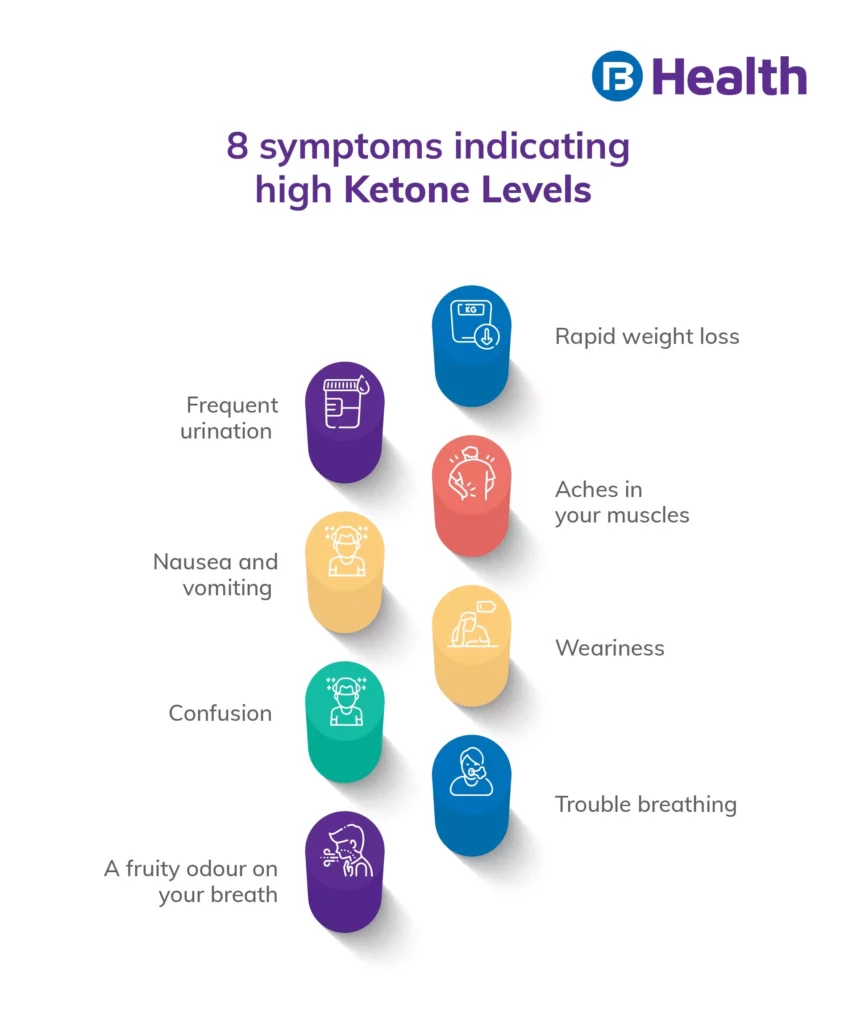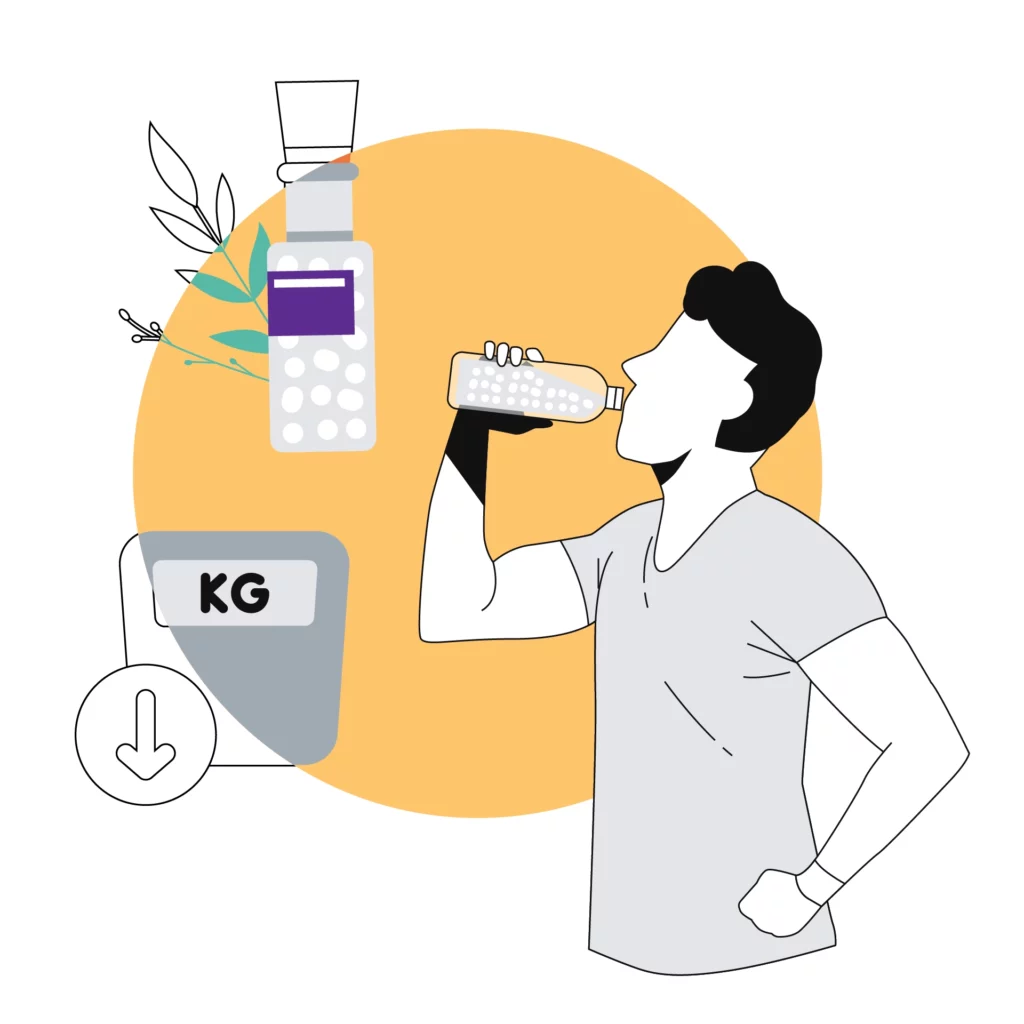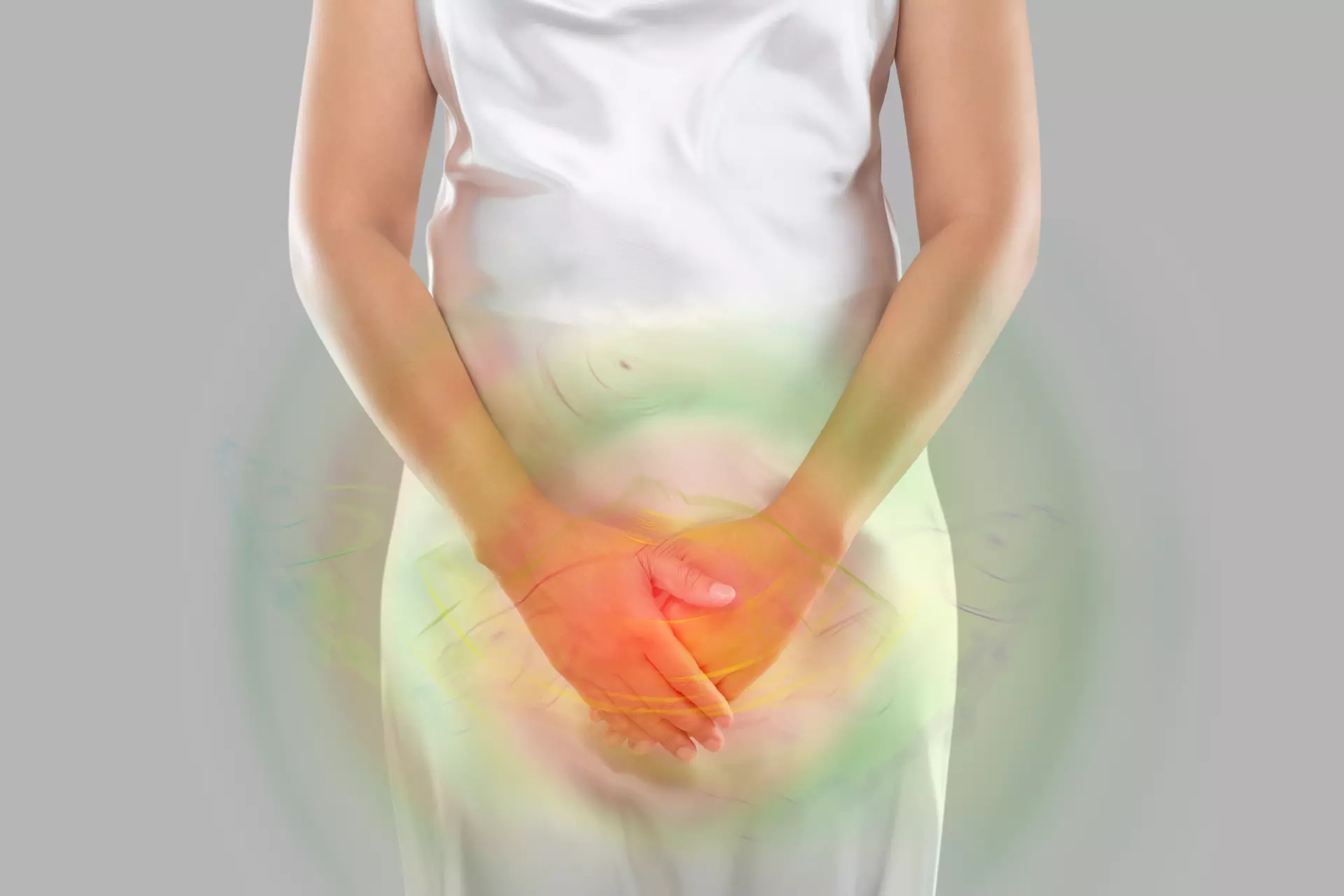General Health | min read
Ketones in Urine: 6 Top Things to Know About Ketone Test
Medically reviewed by
Table of Content
Synopsis
Ketone bodies are three tiny water-soluble compounds, β-hydroxybutyrate, acetoacetate, and acetone, found in human blood and urine. Find out how they are formed and how to keep their levels in control.
Key Takeaways
- Ketone bodies are tiny water-soluble compounds produced by your liver
- You can measure the number of ketone bodies in your urine or blood at home
- Excess of ketone bodies in your urine may indicate diabetic ketoacidosis (DKA)
What are the ketones in urine tests all about?
Ketone bodies are three tiny water-soluble compounds, β-hydroxybutyrate, acetoacetate, and acetone, found in human blood and urine. They are produced by the liver when the availability of glucose becomes low in your body. Their presence in your body may indicate conditions such as prolonged fasting or type-1 diabetes. As the synthesis of ketone bodies is connected with the metabolism of fatty acids, following certain dietary patterns can boost ketone body formation [1]. Ketones in urine tests are used to count the ketone levels in your urine to understand whether your body is producing enough glucose and whether you have certain health complications.
Remember that some amount of ketones in your urine is normal. However, a high amount of ketone bodies in urine may indicate you have ketoacidosis, which means your body has become hyper-acidic. One of the most frequent types of ketoacidosis among humans is diabetic ketoacidosis (DKA). This condition can affect you fast and may lead to life-threatening situations.
If you have diabetes, you can detect any complications early with a ketones-in urine test. Read on to learn more about the formation, symptoms, diagnosis, and treatment of abnormal levels of ketone bodies in urine.
Ketones in Urine Symptoms
Doctors may recommend a ketone test if you have any of the following conditions:
- Weight loss
- Fatigue
- Muscle aches
- Breathing difficulty
- Frequent urination
- Vomiting
- Nausea
- Confusion
- A fruity odor on your breath

Ketones in Urine Causes
People with diabetes may have excessive levels of ketones in urine because either their bodies don’t prepare sufficient insulin or respond effectively to insulin. However, people without diabetes may also have high levels of ketones in urine because their bodies use fat for fuel instead of glucose. Common reasons include extreme workouts, ketogenic diets, abnormal vomiting and eating disorders. Apart from these, here are the other probable ketones in urine causes:
- Diarrhoea
- Pregnancy
- Blood sugar level above 300 mg/dL
- Infection
- Alcohol abuse
- Lack of carbs in your body
- Excessive thirst
- Fasting for extended hours
How to diagnose ketones in urine or blood?
A ketone test is usually conducted by taking a sample of your urine. However, the level of ketones can also be measured from your blood sample. You can opt for lab tests for both of them. With kits available at medical stores, you can also check ketone levels at home.
The color of urine testing kits changes when they react with ketones.
Parents can put the strip to check ketones in urine into the wet diapers for infants. However, if you opt for a blood test, you will get the exact reading of the value of ketones in the kit. Here’s a look at how the level of ketones in urine and blood is measured:
Normal or negative | Less than 0.6 millimoles per litre (mmol/L) |
Low to moderate | 0.6 - 1.5 mmol/L |
High | 1.6 - 3.0 mmol/L |
Extremely high | Beyond 3.0 mmol/L |

What are the precautions to take before going for a ketone test?
Healthcare providers may ask you to fast for a while before taking your blood or urine samples for a ketone test. You must do the same if you check ketones in urine or blood at home. Ask your doctor to learn whether you need to take any other precautions.
Additional Read: Cardiac Profile Basic TestWhat is the treatment for high ketone levels?
As you already know, a high level of ketone in your body can indicate ketoacidosis or diabetic ketoacidosis. Here’s a look at how to manage the condition and keep the counts of ketones in urine low:
- Fluid replacement: Treatment with fluids helps reduce ketone density and blood sugar. Based on your condition, doctors decide whether to give them orally or through a vein
- Electrolyte replacement: Electrolytes include minerals such as potassium, sodium and chloride which get ionized after getting dissolved in water. DKA reduces your insulin level, which also affects the level of the essential electrolytes in your blood. In such situations, intravenous (IV) electrolytes are prescribed to make your systems function normally
- Insulin therapy: IV insulin injection is key to reversing DKA. Your doctor will prescribe how much extra insulin you need to take in case of DKA. You can return to your usual insulin therapy once the blood sugar level reduces to 200 mg/dL (11.1 mmol/L) and the acidic property of your blood has been neutralized
Early symptoms of ketones in the urine
With an increased quantity of ketones in urine, you may experience the following early symptoms:
- Increased frequency of urination
- Fruity dour on the breath
- Trouble breathing
- Irritability
- Vomiting
- Abnormal sound of breathing
- Nausea
- Numbness in the limbs
- Muscle cramps
- Confusion
- Palpitations
- Increased appetite
- Stomach ache
- Disturbed vision
- Lightheadedness
- Sleep disorders
- Flushed skin
- Rapid weight loss
With all this knowledge about ketones in the urine and urine ketone tests, you can monitor your diabetic parameters and take immediate action if you experience ketones in urine symptoms. To know further, you can book an appointment with a general physician on Bajaj Fiinserv Health and resolve all your doubts. Whether you are not diabetic or not, following a healthy diet and working out every day will help you keep ketones in your urine in control.
References
- https://www.sciencedirect.com/topics/agricultural-and-biological-sciences/ketone-bodies
Disclaimer
Please note that this article is solely meant for informational purposes and Bajaj Finserv Health Limited (“BFHL”) does not shoulder any responsibility of the views/advice/information expressed/given by the writer/reviewer/originator. This article should not be considered as a substitute for any medical advice, diagnosis or treatment. Always consult with your trusted physician/qualified healthcare professional to evaluate your medical condition. The above article has been reviewed by a qualified doctor and BFHL is not responsible for any damages for any information or services provided by any third party.



